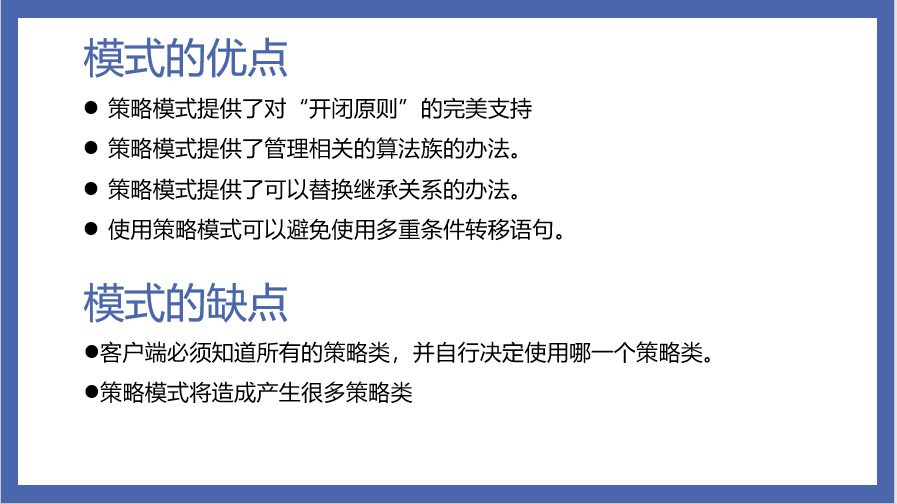视频连接:https://www.bilibili.com/video/BV1iQ4y1M7FV/
今天由为大家介绍一下策略模式,

先给大家提出一个问题,假设现在是国企假期,我们要去外地旅游,需要选择一种出游方式,可以骑自行车,坐汽车,坐火车,坐飞机,都可以达到我们的目的,请问我们如何进行选择。

如何进行这个选择,由此引出我们策略模式的模式动机:
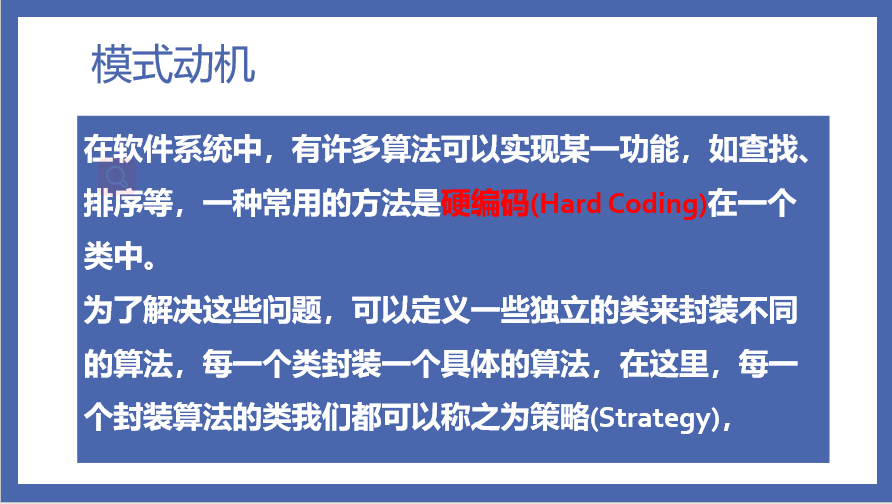
而模式策略的定义又是什么呢?

如果我们不适用策略模式,我们将这样来选择出行方式
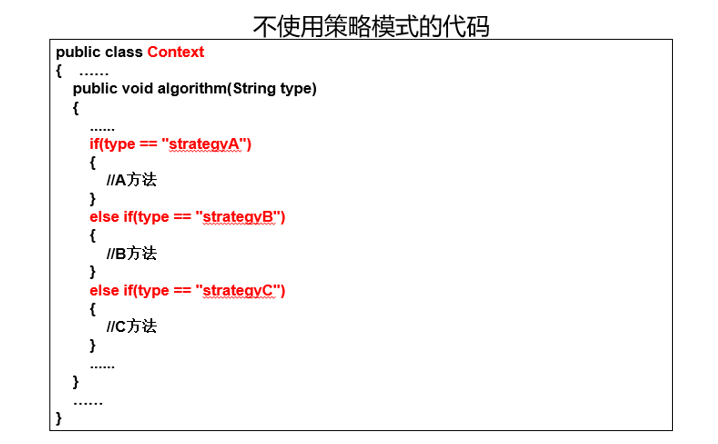
这中写法造成如果我们要增加或者删除方法都需要修改整个Context中的algorithm(),不利于我们动态灵活的选择算法已达到出行的目的
代码:
public class Context
{ ……
public void algorithm(String type)
{
......
if(type == "strategyA")
{
//A方法
}
else if(type == "strategyB")
{
//B方法
}
else if(type == "strategyC")
{
//C方法
}
......
}
……
}
如果我们使用了策略模式,重构这次出行的选择,
首先画出策略模式的结构:
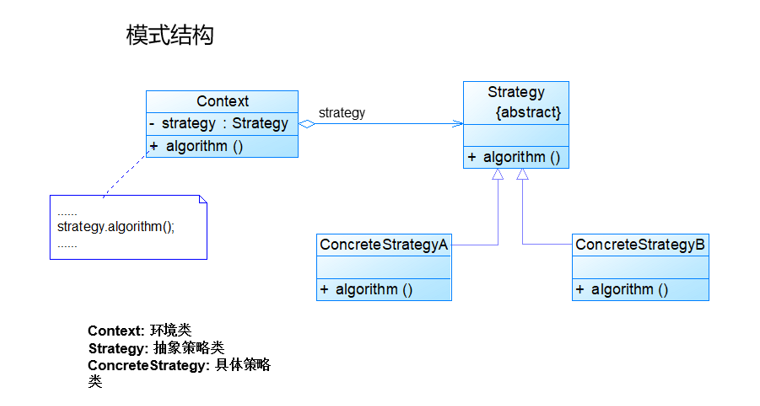
根据类图写出代码

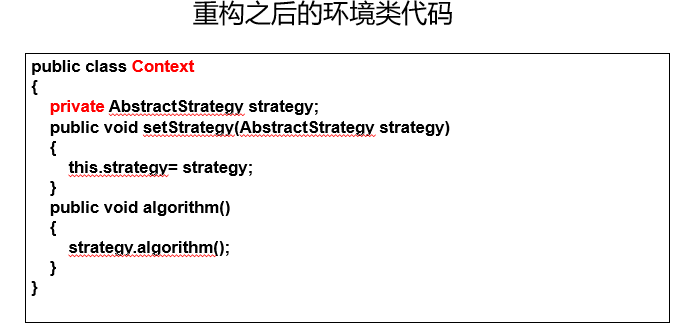
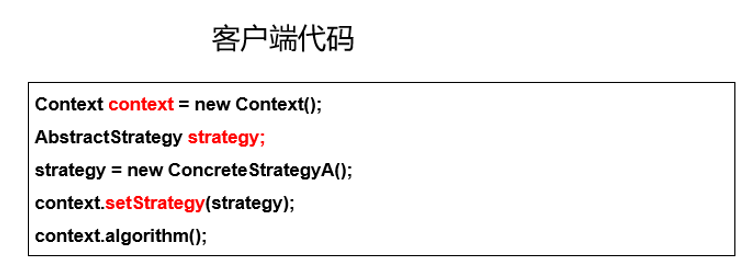
代码
public abstract class AbstractStrategy
{
public abstract void algorithm();
}
public class ConcreteStrategyA extends AbstractStrategy
{
public void algorithm()
{
//算法A
}
}
public class Context
{
private AbstractStrategy strategy;
public void setStrategy(AbstractStrategy strategy)
{
this.strategy= strategy;
}
public void algorithm()
{
strategy.algorithm();
}
}
Context context = new Context();
AbstractStrategy strategy;
strategy = new ConcreteStrategyA();
context.setStrategy(strategy);
context.algorithm();
由此见得,一个系统需要动态地在几种算法中选择一种时,使用策略模式是个好的选择
